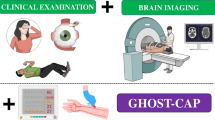Abstract
Head injury is a major cause of disability and death among young people. Neurointensive care has reduced the mortality and improved the outcome after severe traumatic brain over recent decades. The development of neuromonitoring in neurointensive care units has enabled early detection of secondary complications and, thereby reduce secondary brain damage. Neurointensive care units have made advances with continuous neuromonitoring during the past decade. Improvements in neurointensive care have been predominantly in intensification and optimization of already established ways to monitor and treat patients. Primary brain damage is damage sustained immediately on direct impact. Secondary brain damage often results several days after from a secondary brain insult. Modern neurointensive care focus has been on prevention of secondary brain damage. Intracranially, as secondary brain damage advances, we see a rise in intracranial pressure, increased edema, vasospasm and seizure activity. Systemic manifestations of secondary brain damage are anoxia, hypercapnia, hypocapnia, hypotension, hyperthermia and hyperglycemia. In our study we collected the intracranial and systemic clinical effects of brain damage by using our NICU’s advanced monitoring systems. By using this continuous neurointensive monitoring our institution’s goal is to ultimately prevent and to establish effective treatment strategies for secondary brain insult.
Access this chapter
Tax calculation will be finalised at checkout
Purchases are for personal use only
Preview
Unable to display preview. Download preview PDF.
Similar content being viewed by others
References
Marion DW, Obrist D, Carlier PM, et al (1993) The use of moderate therapeutic hypothermia for patients with severe head injuries: A preliminary report. J Neursurg 79:354–362
Shiozaki T, Sugimoto H, Taneda M, et al (1993) Effect of mild hypothermia on uncontrollable intracranial hypertension after severe head injury. J Neurosurg 79:363–368
Marion DW, Penrod LE, Kelsey SF, et al (1997) Treatment of traumatic brain injury with moderate hypothermia. N Engl J Med 336:540–546
Martin NA, Patwardhan RV, Alexander MJ, et al (1997) Characterization of cerebral hemodynamic phase following severe head trauma: Hypoperfusion, hyperemia, and vasospasm. J Neurosurg 87:9–19
Kelly DF, Martin NA, Kordenstain R, et al (1997) Cerebral blood flow as a predictor of outcome following traumatic brain injury. J Neurosurg 86:633–641
Author information
Authors and Affiliations
Editor information
Editors and Affiliations
Rights and permissions
Copyright information
© 2006 Springer-Verlag Tokyo
About this paper
Cite this paper
Honda, M., Seiki, Y. (2006). Neurointesive Care with Multimodal Monitoring. In: Kanno, T., Kato, Y. (eds) Minimally Invasive Neurosurgery and Multidisciplinary Neurotraumatology. Springer, Tokyo. https://doi.org/10.1007/4-431-28576-8_56
Download citation
DOI: https://doi.org/10.1007/4-431-28576-8_56
Publisher Name: Springer, Tokyo
Print ISBN: 978-4-431-28551-9
Online ISBN: 978-4-431-28576-2
eBook Packages: MedicineMedicine (R0)




